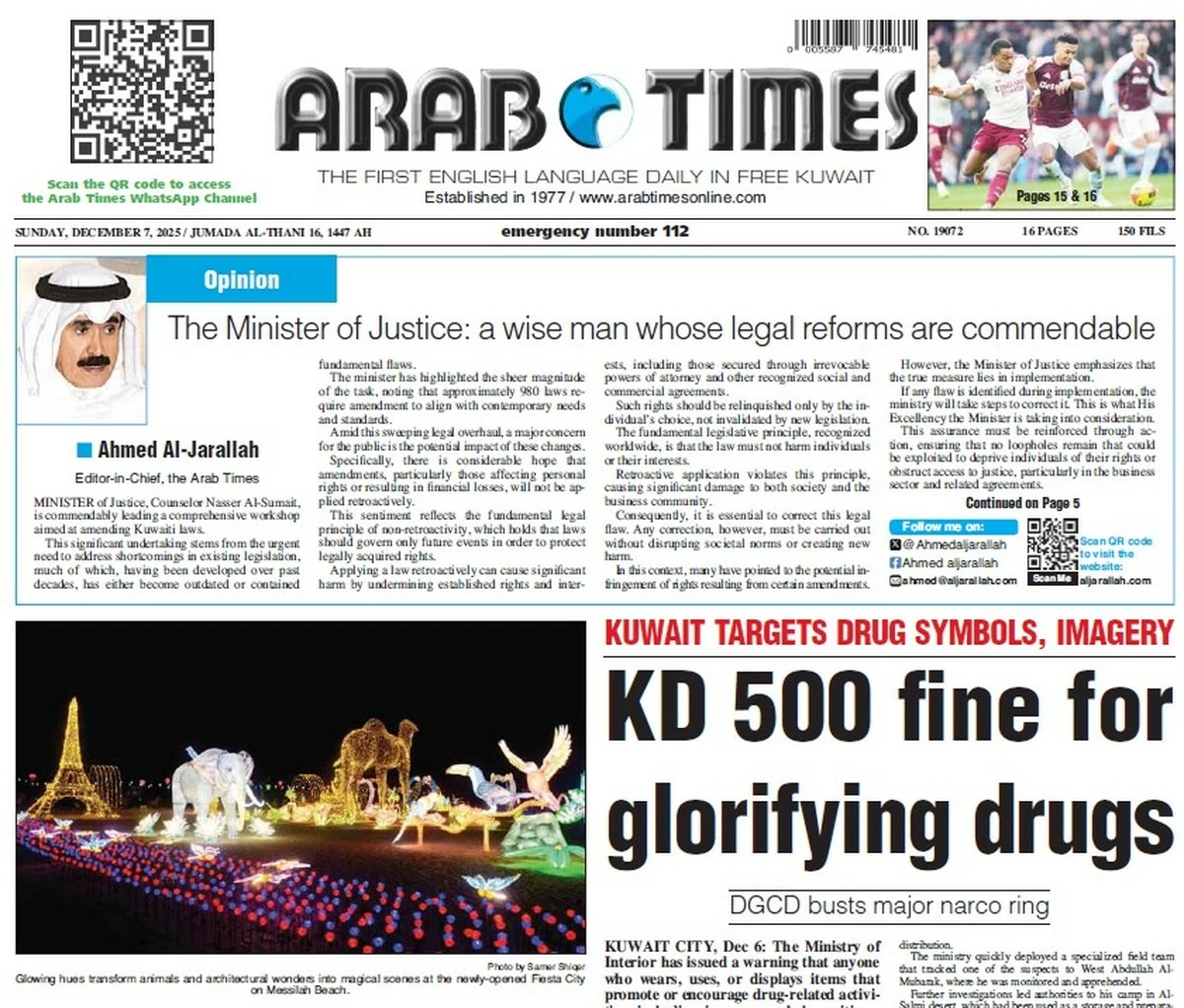09/10/2025
09/10/2025

KUWAIT CITY, Oct 9: Minister of Electricity, Water, Renewable Energy and Finance and acting Minister of State for Economic Affairs and Investment Dr. Subaih Abdulaziz Al-Mukhaizeem stressed the importance of advancing the path of joint Gulf action, and solidifying economic and development cooperation among the Gulf Cooperation Council (GCC) countries, which will consolidate integration and support the position of the GCC countries in the global economy.
Al-Mukhaizeem made the statement while presiding over the seventh meeting of the Permanent Preparatory Committee at the ministerial level of the GCC Economic and Development Affairs Authority on Thursday, during which he underscored the need to maintain Gulf cooperation and implement joint decisions and initiatives. He also emphasized the importance of harnessing all capabilities and unifying efforts to translate the aspirations of the GCC leaders into a tangible economic and development reality.
The GCC ministers of Finance and Economy and Secretary General of the GCC Jassim Mohammed Al-Budaiwi attended the meeting, which tackled a number of topics, particularly Gulf economic unity, removing obstacles to the implementation of Gulf decisions and agreements, intensifying economic integration among the GCC states, and fulfilling the requirements of the Gulf Common Market.
A number of joint economic and development issues were discussed as well, such as the timeline and action plan for achieving Gulf economic unity, completing the requirements of the customs union, developments in the initiatives included in the roadmap for economic unity, the report on indicators of Gulf economic integration, and a report on free trade agreement negotiations with international partners and the importance of strengthening the unified Gulf negotiating position to serve the economic interests of the GCC countries. During the meeting, the ministers deliberated on the most important indicators of economic developments in the GCC countries, and the opportunities and challenges that necessitate enhanced joint action and integration of economic policies.
Meanwhile, a senior Gulf official told the newspaper that the intensive meetings of the finance and economy ministers of the GCC countries aim to advance decisions, agreements and recommendations related to the economic progress of Arab Gulf states. He confirmed the serious efforts of GCC countries with similar economies to diversify sources of income, so that oil no longer dominates the revenues in most GCC countries’ budgets, especially since most Gulf countries have made significant strides in diversifying income sources by focusing on tourism, up to the point that some Gulf cities and capitals have become leading global tourism destinations, in addition to diversifying other sources of income in trade, industry and agriculture.
Furthermore, Al-Budaiwi stated that the GCC countries are focusing on all areas of Gulf cooperation, specifically the economic and development sectors. He underscored the importance of coordination, integration and interconnectedness among member states in all fields, and strengthening cooperation between their peoples in various fields. He pointed out that economic indicators show the importance of the GCC bloc at the regional level, as the GCC countries’ gross domestic product (GDP) at current prices reached $2.3 trillion last year, ranking ninth globally in terms of GDP.
He revealed the sovereign wealth of the GCC is estimated at $4.8 trillion, more than 32 percent of the combined assets of the world’s top 100 sovereign wealth funds. He said the GCC countries rank first globally in oil production, with crude oil production exceeding 16.1 million barrels per day, in addition to being first globally in crude oil reserves, amounting to about 512.1 billion barrels.
By Najeh Bilal Al-Seyassah/Arab Times Staff


